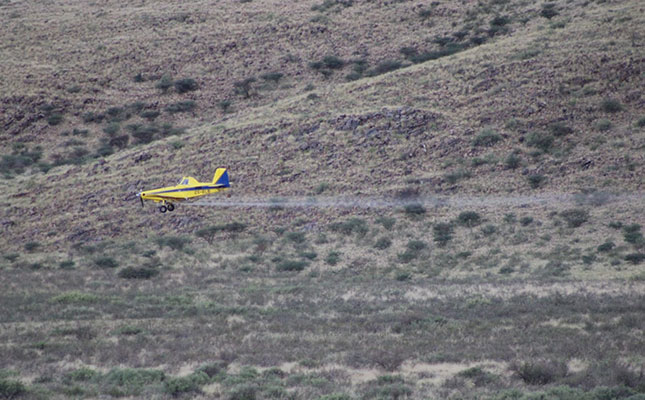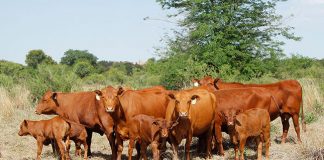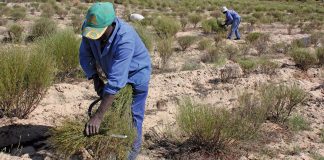
Photo: Agri Northern Cape
In March 2022, the department’s figures indicated that the locust outbreak had affected more than 24 million hectares of agricultural land in South Africa.
Willem Symington, chairperson of Agri SA’s Natural Resources Centre of Excellence, said. many locust officers were last paid in November 2021.
“This is a wonderful programme and a real success story in terms of public-private partnerships, but administrative red tape could make the whole system collapse,” Symington told Farmer’s Weekly.
“If people aren’t paid soon, they won’t be willing to contain locusts anymore, and how are we going to beat this plague then?
The fuel allowance has also not been adjusted since 2013, and, with the current record-high fuel price, locust officers now find themselves in dire financial straits.”
The system works as follows: people are nominated from local communities to become locust officers, and they have people appointed below them to assist. The department supplies spray bottles and the necessary insecticide. Every month the officers and their subordinates have to submit documentation citing the number of days they worked and the distances they travelled (to a maximum of 150km per day).
“This system has worked for years, but last year and this year the locust numbers became so vast that it has led to an incredible amount of paperwork. The government’s archaic system simply cannot cope with the volumes of physical work that needs to be done to ensure that the people are paid. We need to find a simpler system in order to have the people paid quicker,” Symington said.
Currently, all paperwork needed to be sent to a regional office. It was then sent to the department’s head office in Pretoria and from there to Treasury for payment.
“At each point, the paperwork is checked to ensure that the claims are correct. But this is wasting time, especially for a worker that’s used to earning day wages.
They cannot wait for government to take months to make payments. They have hungry people waiting at home today.”
Another issue was that all helpers now needed to have bank accounts. However, many people’s bank accounts were inactive for months due to them not being paid, and subsequently the banks closed the accounts. When government finally paid the money, the bank accounts could not receive it.











